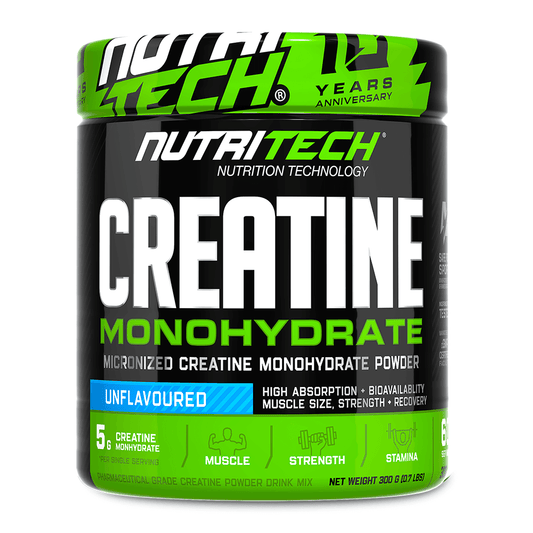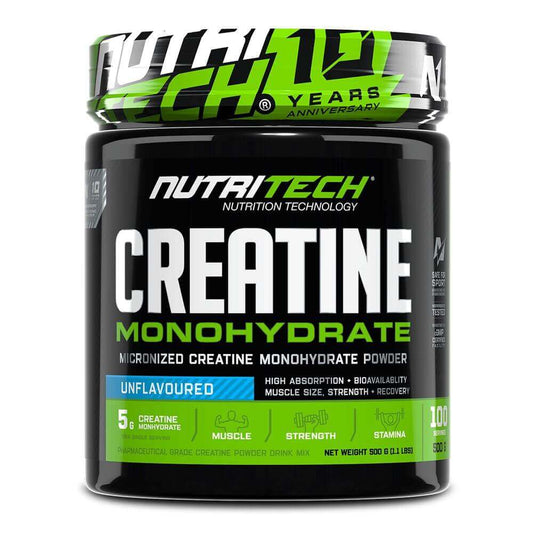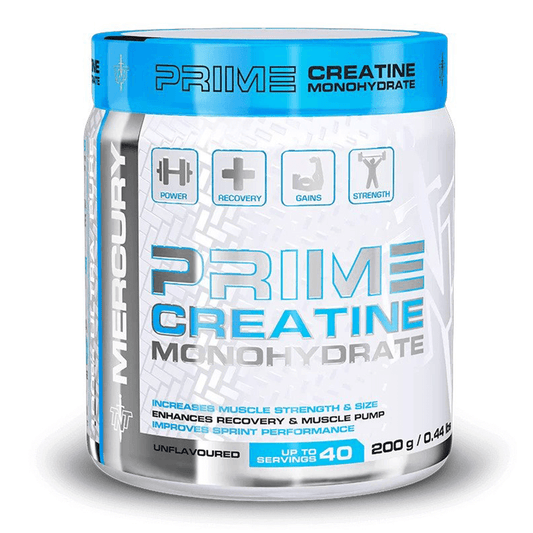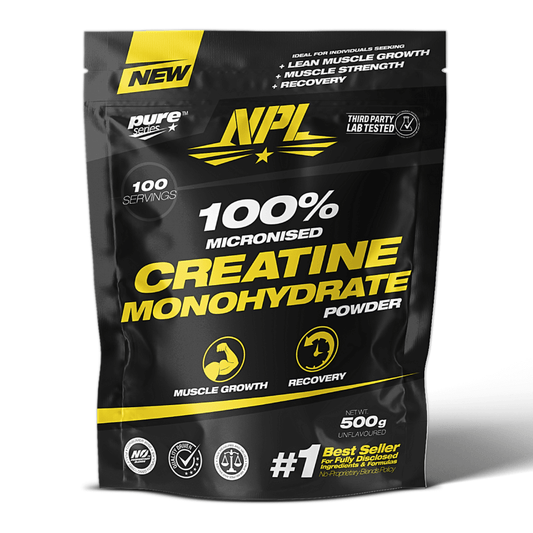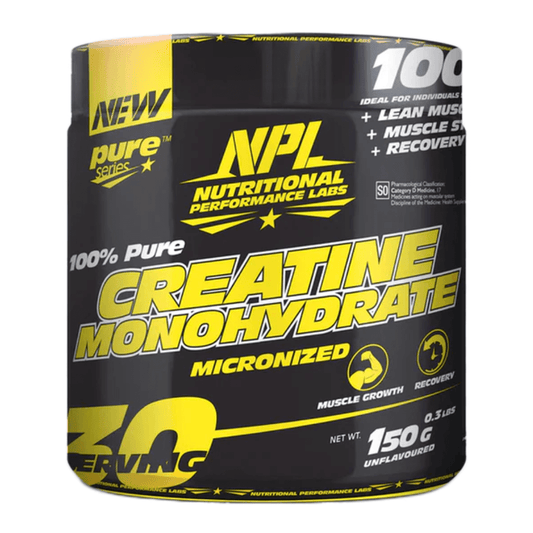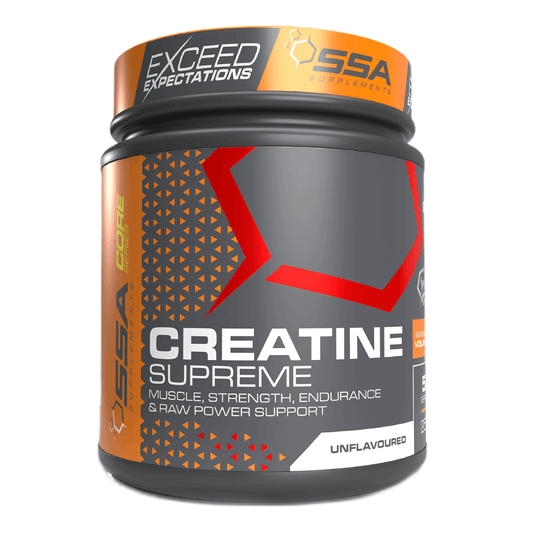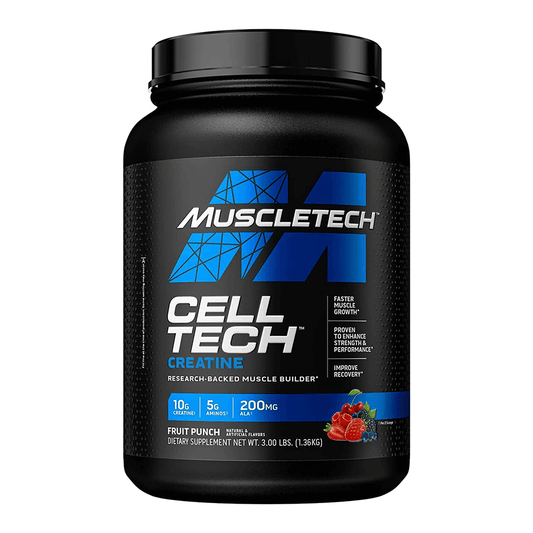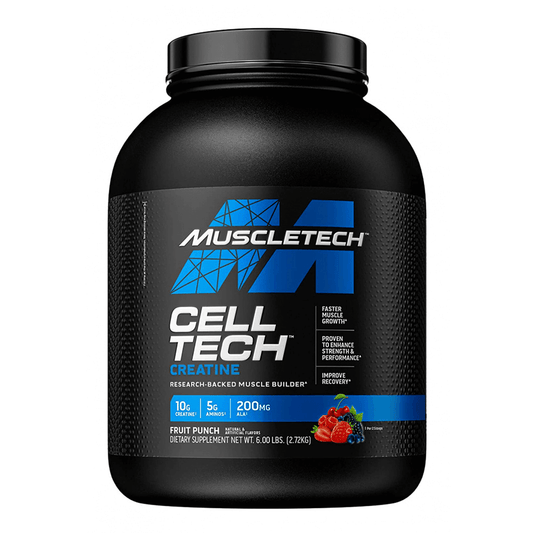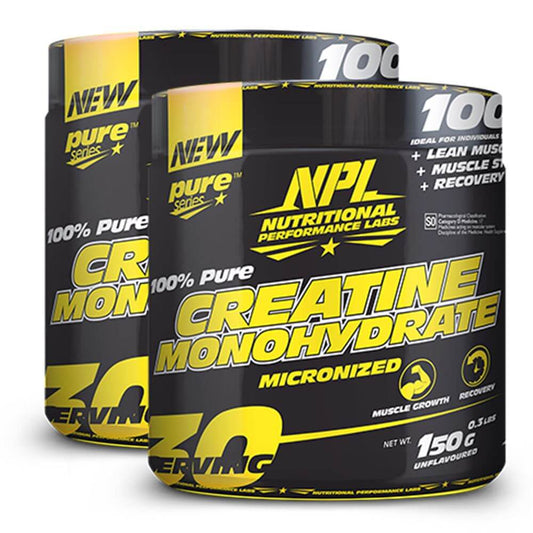
From the time that it was discovered in 1832, creatine has easily become the most talked about and controversial supplement in the health and fitness sphere. Questions ranging from “is it natural?” to “is it safe?”, and even “does it really work?”, have all been talking points around this ever so popular supplement.
Creatine is by far one of the most researched and studied supplements on the market. It has been counted as both extremely safe and extraordinarily effective for those engaged in physical pursuits (not just bodybuilders). To say that it is the most important supplement on the shelf is nothing short of the reality that is creatine.
Let us have a look at the benefits of creatine and how it is so effective:
- Creatine helps you produce more energy: Creatine greatly helps in the formation and production of ATP in the body (a vital energy source that your body uses for many key functions and, in our case, for exercise. Your body has a limit to how fast it can produce ATP in times of strenuous work and creatine greatly improves this rate. In other words, more energy equals more intensity for longer periods which subsequently means better muscle stimulus. Better muscle stimulus equals muscle growth.
- Creatine can boost protein synthesis: A study done at the University of Louvain in Belgium showed that creatine greatly increased the formation of proteins used for the body to produce more muscle.
- Creatine can boost IGF-1 levels in the body: The same study mentioned above showed this increase in IGF-1. For those who are unfamiliar, IGF-1 is a hormone that plays a significant role in childhood growth and has extremely anabolic effects in adults. So, you can imagine how a natural boost in this hormone can greatly aid muscle growth goals (and no, that doesn’t make creatine a steroid).
- Creatine increases cell volumisation: Cell volumisation is a term that basically refers to the muscle cells being able to hold more water (water in the muscle, not under the skin as most people believe). Cell volumisation results in an increase in muscular strength and rapid muscle growth.
- Creatine my possibly decrease myostatin levels: Myostatin is the hormone responsible for limiting how much muscle your body is allowed to hold. A study done at Arak University in Iran showed that creatine may have had an effect on decreasing myostatin levels during resistance training. I.E., creatine may be a possible limit remover on your genetics.
- Creatine speeds up recovery: Thus, helping you put on muscle a rate faster than normal (or if you weren’t using it). A study done at the University of Belgium demonstrated just this, where a control group gained 2 kg less in a 6-week period than the contrasting group who took creatine for that duration of time.
With all the above effects, it is easy to see why creatine is considered such a powerhouse. However, there are some confusing factors that need to be cleared up when it comes to which type of creatine you should take. This mainly pertains to creatine monohydrate and creatine hydrochloride (otherwise known as creatine HCL). So let us have a look at them individually.
Creatine Monohydrate:
This version of creatine is the most common and most used form of this supplement. Additionally, because it has been used for such a long time, it is the most studied version of this supplement and as such, the most trusted.
Creatine monohydrate constitutes a creatine molecule and a water molecule together. This combination is what makes it monohydrate.
Most importantly, due to its long-standing nature in the supplement industry, creatine monohydrate boasts the proven claims of it being both safe and effective. What makes it even more impressive is that despite it being the most effective supplement on the market, it is also especially affordable and cheap to make.
Creatine Hydrochloride
Creatine HCL gained considerable fame and attraction when it was developed as it made the claim that it was more soluble than its original counterpart, creatine monohydrate. As a s result, the idea would be that could take less of HCL and get more benefits than monohydrate.
However, the data on this has been inconclusive with not anywhere near as many definitive answers as needed to make a clear case that it is superior to its original version. It is still a relatively new supplement in its own right and needs more microscope time.
Final verdict?
I say go for the one that makes you feel more comfortable. I would mainly suggest that if you struggle with any sort of issues from creatine monohydrate but still want to reap its benefits, then switching over to HCL might be the right move. Other than that, monohydrate has the upper hand in availability, affordability, and reliability.
At the end of the day, what matters is this: Creatine is for everyone. Creatine is safe. Creatine is effective. I often refer to it as nature’s superpower formula as that is exactly how it works. The form of creatine does not make a difference at the end of it all, but you do have a bit more insight on which one you might find the most suitable for yourself.
One thing is definitely for certain though: if you are serious about any of your physical endeavours, then having creatine in your home and always stocked and ready to go is an absolute imperative for you and your goals.
Shop Now:
To view our range of creatine supplements, scroll down or click here.

